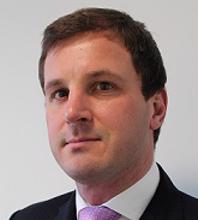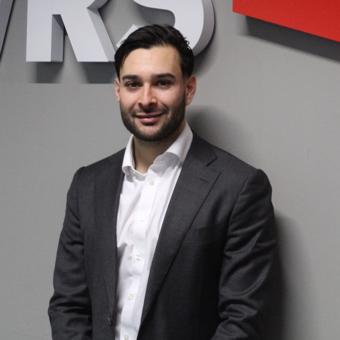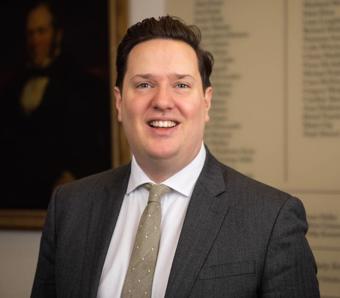Michael Leadbeater, director of group legal services at William Hill, on his role, working internationally & what’s in-store for the gaming sector
Michael, firstly – can you tell readers of The Brief a bit about yourself and background?
I have recently been appointed to the new role of director of group legal services at William Hill, covering legal matters across all of our territories and channels. Prior to this, I was general counsel and head of commercial at William Hill Online, based in Gibraltar, for six years. Before relocating to Gibraltar, I was with William Hill in Leeds as legal counsel, which was my first in-house role. That came after eight and a half years at Eversheds, where I had also completed my training contract.
The online gaming and gambling sector is now heavily legislated so what are the legal challenges you and your team have to deal with on a day to day basis?
In terms of regulation, the greatest single challenge is presented by the sheer variation between all of the different countries from which we accept business. We have licences in the UK, Gibraltar, Spain and Italy, all of which have separate regulatory bodies with their own approach, and different operating rules. Making sure that we understand how these impact on our operations, and ensuring that the business understands and complies with them, is central to us being able to continue to hold those licences and serve our customers there. Added to that, it’s constantly evolving as social and political attitudes to gambling, and in particular online gambling, change.
What do you think might be next in terms of new laws affecting the industry?
The UK has just introduced a new regulatory and taxation regime related to online gambling which has brought the online industry under the jurisdiction of the Gambling Commission - previously, the online players had been regulated offshore. This regime will take a while to bed down as the sector gets used to how the Gambling Commission works. In addition, we hope that the Netherlands will liberalise its online sector in the next 12 months or so. In the UK retail sector, various changes are being talked about, but much will depend on the outcome of the General Election in May.
William Hill has expanded its international footprint in recent years into four of the largest regulated gambling markets in the world (Australia, the US, Spain and Italy). What is it like to work across multiple territories?
Apart from the obvious challenges presented by the different institutions, legal systems and approaches to gambling regulation in each territory, there are few other notable challenges. Today, at 9am in London it’s already 8pm in Australia, and we will have to wait until 5pm before it’s 9am in Las Vegas: the normal working days don’t overlap much. So we have to be flexible, but at the same time considerate to our colleagues as we sit in the middle, timezone-wise!
We don’t have that problem for the Spanish and Italian businesses but there is the language barrier instead and – actually more importantly – different business, cultural and communication norms. Building good relationships with colleagues and contacts requires you to be cognisant of these.
How has your role evolved and what has moving into international markets meant for you and your team?
How legal and regulatory support is provided to the business is now a lot more dispersed and varied. We have a core in-house team, but we need lots of support from our external law firms in the various jurisdictions in which we are licenced or have operations. So, as well as Italy and Spain, the online business also has operations in Bulgaria, Tel Aviv and Manila in the Philippines. We also instruct specialist external counsel in other places like the Netherlands, Sweden and Germany, where we are monitoring, and lobbying for, regulatory change.
Can you tell us a bit about William Hill’s future expansion plans both here in the UK and abroad?
In recent years we have been quite an acquisitive business and we are always actively looking at new opportunities; it was recently reported that we had made an offer to acquire 888, for example. Our CEO, James Henderson, has stated that international diversification is one of our three key strategies, so we are likely to continue to grow in that way. Another one is “Omni-Channel”, which is basically about bringing the UK retail channel closer to the online and mobile channels in terms of customer experience. Our retail arm is almost 81 years’ old, whilst online has existed since 1999. Providing a consistent and unmistakable William Hill experience regardless of channel is a strong focus.
How has the market been affected by new entrants and how has William Hill countered their arrival?
Most of the new entrants have been in the online space since that became an area following technological change; first by the internet and then - more recently - by the smartphone. We have played to our strengths; our trusted brand and market-leading expertise in sports betting. It’s served us well. Online, there is no person behind a counter or shop to go into, which is how it has historically been done. Our customers know they will always get paid out on a winning bet, though – it’s their key requirement. Moving the online business to Gibraltar, which included me, has been a key part of our success. It made us think, and act, like an online gaming company.
You worked at Eversheds until 2008 so what made you move in-house from private practice?
At Eversheds, I usually worked on large projects, and they often involved me working closely with the clients in the businesses - it was complete immersion. I always really enjoyed that aspect of the job – we were always integral parts of the wider team, helping to solve business as well as legal problems. As I progressed in the firm, I knew that I wanted to keep that aspect of the job at the centre of my role, but law firms generally require you to migrate into roles with a greater emphasis on team and financial management, and also winning new clients. That led me to look for the right in-house opportunity.
What do you think are the main benefits for a company that employs an in-house legal team?
They know the business. And you can’t ever properly know the business unless you are working in it. It’s not just the obvious stuff like understanding a business’s products, markets and key customers etc. that counts. Only getting a real understanding of the “Why?”, “What?” and “How?” of a business will enable anyone advising it, not just lawyers, to provide the level of insight and ability to make the judgement calls which it needs. The only way to obtain that level and depth of understanding is by working for the business for at least a year or - more probably - two.
Finally, what advice would you give to someone looking to develop their career in-house and be successful as an in-house lawyer?
Think carefully about what you want from the role and whether the company which you are looking at will provide it. Not all in-house legal teams are given the same remit by their businesses. Some in-house teams have a relatively narrow focus on technical lawyering within the relevant field, for example perhaps in some financial services companies. The lawyers are highly specialised subject-matter experts and may not get exposure to wider business and commercial issues.
Other businesses want more generalist lawyers but require more depth of knowledge of the wider business, industry and sector, and will often require the lawyers to leverage their skills and knowledge into the wider commercial decision-making process. There is no right and wrong, but William Hill definitely falls into the latter category.










